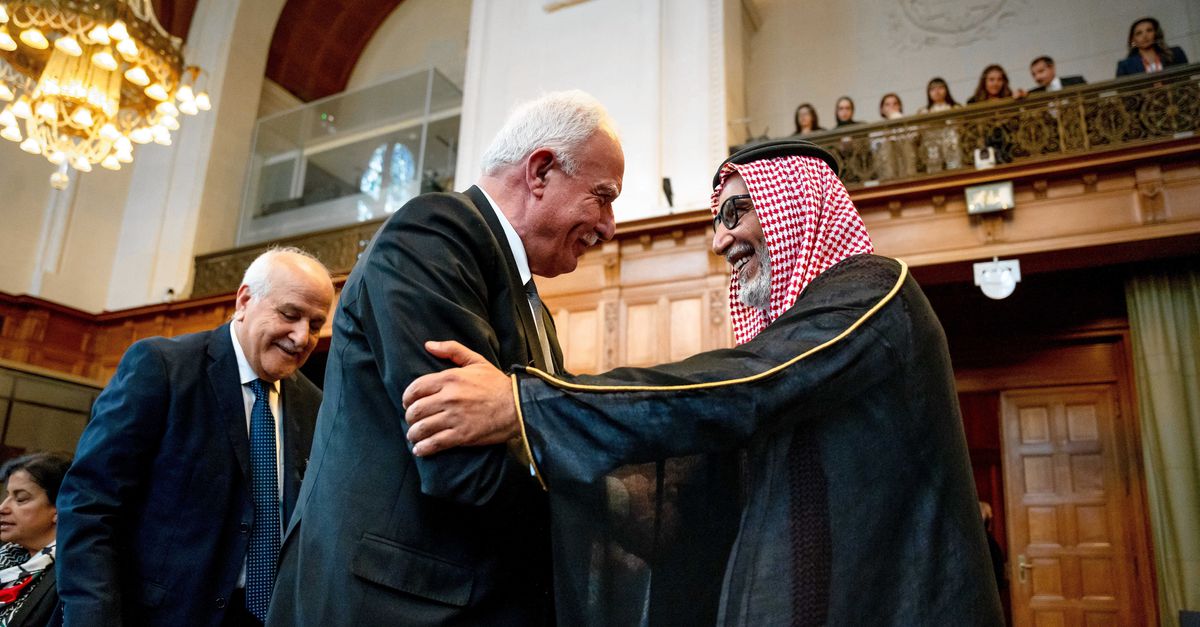The Israeli occupation of Palestinian territory is illegal. Israel must end its occupation as soon as possible, stop building settlements, dismantle existing settlements, and provide compensation to Palestinians who have lost their land and property.
That’s what the International Court of Justice in The Hague, the United Nations’ highest judicial body, said in its opinion on Friday. The UN General Assembly had asked the court in a resolution in December 2022 to issue an opinion on the legal consequences of Israel’s practices in the occupied territories and what that means for the legal status of the occupation.
The court said that states may not consider the situation in occupied territories as legal or support the continuation of the occupation.
Israel occupied the Gaza Strip, the West Bank and East Jerusalem in the 1967 war. Israel annexed East Jerusalem and considers it part of its territory.
The court confirmed on Friday that it considers the Palestinian territories a territorial unit, despite the fragmentation resulting from Israel’s policies, including the annexation of parts of the occupied territories.
Israel actively encourages settlements and the exodus of Palestinian populations in the occupied territories, implements discriminatory policies, and extracts natural resources for the benefit of Israeli citizens and settlers.
permanent control
The court concluded that there was an intention to acquire permanent control over the occupied territories and annex them. According to the court, Israeli policies and practices constitute a violation of the Palestinians’ right to self-determination.
Israel applies Israeli law in East Jerusalem and in West Bank settlements. According to the court, this is contrary to international law. Israel also makes East Jerusalem an inhospitable environment for Palestinians through settlements and discriminatory policies.
In 2005, Israel withdrew militarily from the Gaza Strip and dismantled illegal settlements there. According to Israel, this marked the end of the occupation of Gaza.
The Palestinian Authority delegation in The Hague described the advice as a “turning point for Palestine, justice and international law.”
However, the ICJ has stressed that the criterion for occupation is not permanent military presence, but whether Israel continues to exercise essential elements of control, such as the movement of people and goods, and control of borders. In this case, withdrawal does not relieve Israel of its responsibilities in Gaza as an occupying power.
The court also said that despite the Oslo Accords (1993-1995) between Israel and the Palestine Liberation Organization, PLO, which led to limited Palestinian self-rule in the West Bank, Israel still has the obligations of an occupying power.
International importance
The court’s advice is not binding and is therefore primarily of legal and international significance. The question is whether it will have any impact on Israeli policy.
In Israel, the Foreign Ministry called the court’s decision “biased.” Prime Minister Netanyahu wrote:
The Palestinian Authority delegation in The Hague described the advice as “a turning point for Palestine, justice and international law.” The statement “could not be more timely and urgent.”
Jews cannot be occupiers in their own land, neither in our eternal capital, Jerusalem, nor in Judea and Samaria, our historical homeland.
Also in 2004, the International Court of Justice issued an advisory opinion on the Israeli occupation. It ruled that the construction of a wall across the occupied Palestinian territory was illegal. The “separation wall” was still standing. The court stressed on Friday that the wall must be dismantled as part of the return of the occupied territories.
The court’s rulings on the occupation are separate from the genocide case against Israel brought by South Africa, which is currently being heard by the International Court of Justice. In January, the court ruled in an interim ruling that Israel must do everything in its power to prevent genocide in Gaza.
Read also
Israeli parliament votes against Palestinian statehood





